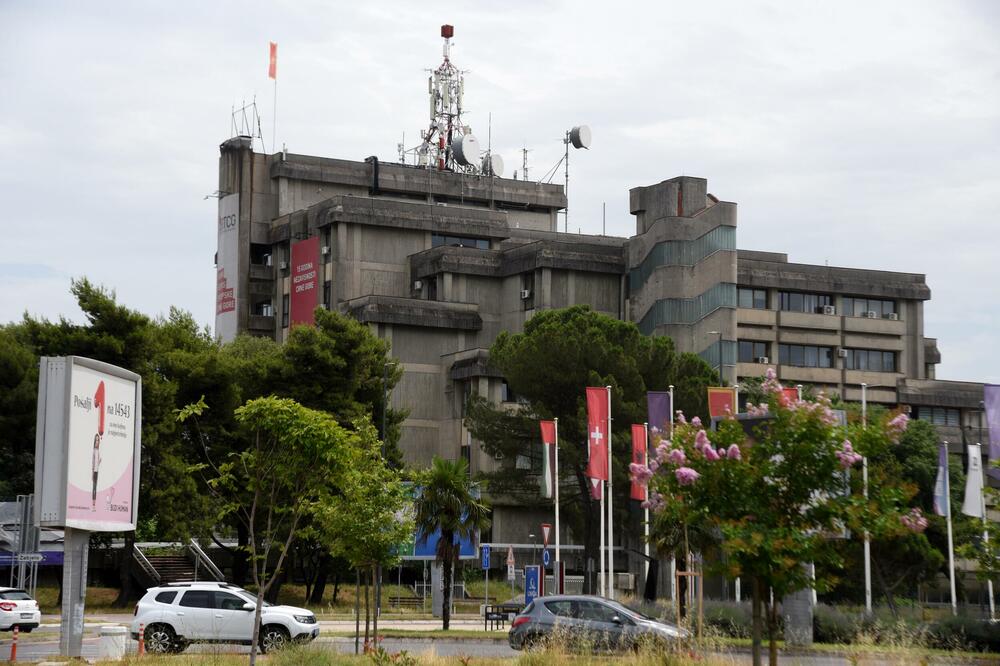A group of non-governmental organizations and associations called on the Ministry of Culture and Media to ensure with the new Law on Radio and Television of Montenegro (RTCG) that, immediately after the "expected rapid adoption" in the Assembly, the appointment of new members of the RTCG Council, while invited the parliament to stop the process of electing two members of that council under the current law.
"Having in mind the escalation of controversies in the RTCG, which was mainly contributed by the current composition of the RTCG Council through disobeying court decisions, we believe that it is the responsibility of the Ministry of Culture and Media, as well as the Parliament of Montenegro, to contribute to the urgent resolution of this situation within their competences". it is stated in the announcement.
They point out that the latest version of the draft Law on RTCG (Law on the National Public Broadcaster - Public Media Service of Montenegro) prescribes clear conditions for the election of members of the RTCG Council.
"They are required to have a VII-1 level of professional education and 10 years of work experience, while the general director is required to have a VII-1 level of professional education and at least 10 years of work experience. Also, the draft Law on RTCG provides that the number of members of the Council Increase the RTCG from the current 9 to 11. In addition, the draft Law foresees the procedure for electing members of the RTCG Council, which limits the inappropriate influence of political parties on the process of electing members of the Council in such a way that NGO representatives in this body will not be elected by the representatives of the Administrative Board. in the Assembly, they will be chosen by NGOs that meet the demanding criteria that prove their activity. These provisions, and the tightening of the criteria for the selection of Council members, should lead to greater independence of the RTCG Council, and consequently to greater independence of the RTCG management," the announcement reads.
The Ministry predicts, they add, that the implementation of the law "will be practically postponed for three years so that the current Council and management of the RTCG can complete their mandate". In this way, the Ministry, according to the NGO sector, demonstrates "an inappropriately ignorant attitude towards pressing problems and consciously makes sense of the necessary changes that should be induced by the new media laws."
According to the announcement, the current Council was elected in a procedure that enabled the strong influence of political subjects through the parliamentary Administrative Committee, which "according to their political preferences" chose representatives of NGOs, and they make up four of the nine members of the Council. Such a Council, they note, twice illegally elected the general director of RTCG, which was confirmed by court verdicts, as well as the decision of the Agency for the Prevention of Corruption (ASK).
"The Assembly is currently carrying out the procedure of electing two members of the Council for the new mandate, although it is clear that the new legal text must be adopted quickly, so that Montenegro will receive IBAR in June, as well as that one of the two candidates participated in the double illegal appointment of Raonic". it is written in the announcement.
They remind that the process of amending media laws has been going on for almost 30 months, and that the key requirements of the European Union and the Council of Europe are to increase the independence in the work of the governing bodies of RTCG and the Agency for Electronic Media (AEM). "These are the obligations of the state of Montenegro in the EU accession process. The final adoption of these legal texts is expected in the next month," they added.
In the NGO sector, they believe that there is no valid argument to postpone the selection of all management structures of the RTCG for three years, because, as they say, this is the only way to create the preconditions for that institution to be "freed from party influence and professionalized into a truly public service".
"Breaching the law and ignoring court rulings in RTCG cannot be a contribution to the position of the Government, which claims to be committed to European integration and the rule of law. Therefore, we call on the Ministry of Culture and Media to respect this request of the civil sector and to include provisions in the final version of the draft Law on RTCG enables the application of the law immediately after its adoption, but also the Assembly of Montenegro to suspend the current procedure and to elect all new members of the Council according to the new legal solution", concludes the initiative signed by:
Media Center, Goran Đurović
Center for Civic Education (CGO), Daliborka Uljarević
NGO Prima, Aida Perović,
Montenegrin PEN Center, Milan Marković
Association SPEKTRA, Jovan Ulićević
Center for Investigative Journalism CIN-CG, Milka Tadić Mijović
Center for Monitoring and Research (CeMI), Zlatko Vujović
Alliance for equal rights of LGBTI persons ERA, Danijel Kalezić
Montenegrin Women's Lobby, Aida Petrović
Association of Youth with Handicap of Montenegro (UMHCG), Marina Vujačić
Montenegrin LGBTIQ association Kvir Montenegro, Staša Baštrica
NGO Juventas, Ivana Vujović
Society of Montenegrin Publishers, Vladimir Vojinović
Media Union of Montenegro (SMCG), Radomir Kračković
Center for Women's Rights (CŽK), Maja Raičević
Institute of alternatives, Stevo Muk
Center for the Development of Non-Governmental Organizations (CRNVO), Zorana Marković
Bonus video:




